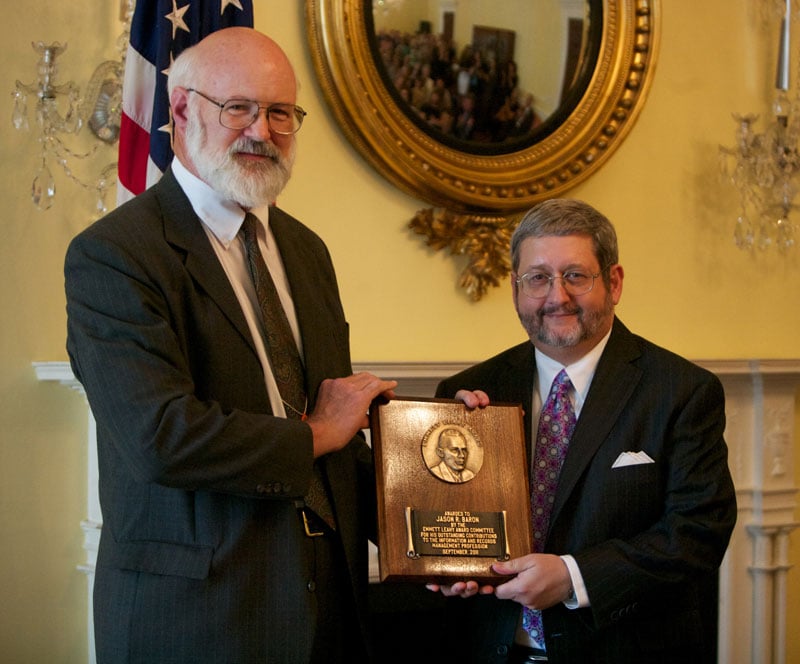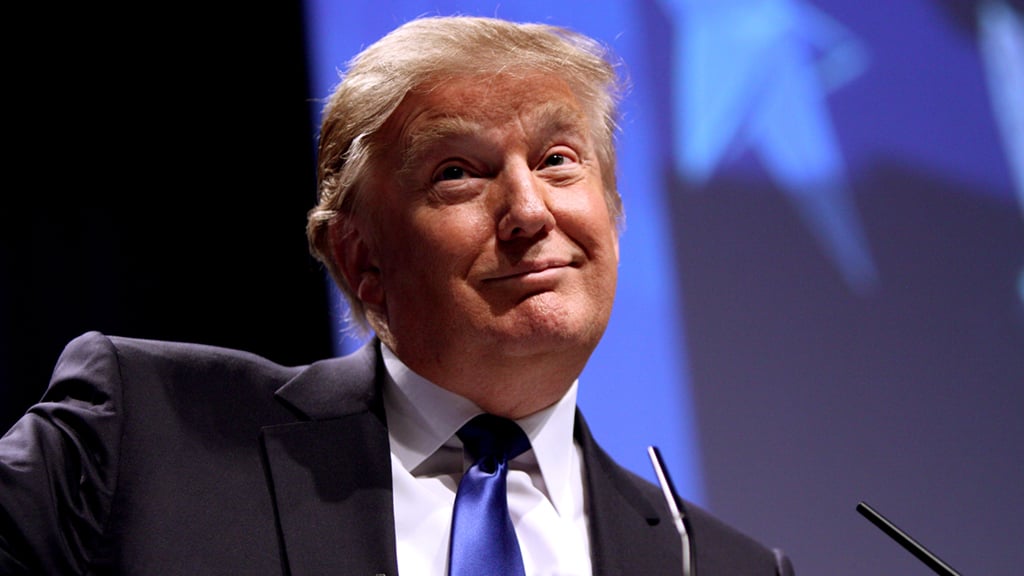On Monday, former President Donald Trump announced that the FBI had searched his residence, Mar-a-Lago. The federal agents were looking for documents sought by the National Archives and Records Administration (NARA). The raid came after Trump had delayed sending 15 boxes of records to the National Archives for months, doing so only after the National Archives threatened to send a letter to Congress or the Justice Department. Under the Presidential Records Act, White House materials must be sent to the Archives once a president leaves office.
We spoke to former director of litigation at the National Archives Jason R. Baron about his own experiences pursuing White House records and his thoughts on the Mar-a-Lago raid. Baron, who is currently a professor of the practice in the University of Maryland’s College of Information Studies, was the first director of litigation at the Archives and served from 2000 to 2013.
What exactly does the director of litigation at the National Archives do?
The director of litigation works closely with the general counsel at NARA to ensure that NARA is adequately represented in all of the lawsuits that it has been named as a party in. We should remember that the National Archives assumes legal custody of presidential records at the end of a president’s term in office, so part of the duties of the director of litigation is to ensure all legal matters affecting a former president’s records are handled.

What was the craziest thing that happened when you were director of litigation? Did anything come close to the Trump raid?
You would be surprised at how many controversies affecting records in government in some way, shape, or form touch the responsibilities of the National Archives. I was involved in recovering hundreds of records of the Roosevelt administration, where FDR’s secretary purloined records after he had died in office. They showed up at an auction, and we pursued the possibility of litigation to get them back. What I found fascinating was that almost every week, there would be a lawsuit or a potential for a lawsuit involving any matter of American history.
In my time as litigation director, the one matter that generated controversy in particular was Sandy Berger, former national security adviser in the Clinton administration, removing documents in his clothing that related to his participation in matters involving Osama bin Laden, which were investigated by the 9/11 Commission. That removal issue resulted in Mr. Berger being charged with taking classified documents out of the Archives, and he subsequently pled to a misdemeanor.
The National Archives referred this case to the Department of Justice, right? So how involved would the Archives have been in the lead-up to the raid?
My understanding is that National Archives staff were in conversations with staff for the former president after the former president left office pretty much on a continuous basis.
All records at Mar-a-Lago—all presidential records at Mar-a-Lago—should have been returned forthwith in the days after the former president left office on January 20, 2021. That is what the Presidential Records Act requires. It says that the archivist of the United States, which means NARA, takes legal custody of presidential records from a former president. There is no provision in law that allows the president to take boxes of records, whether they are classified or not, into his private residence. The actions here have been consistent with the duties, responsibilities and the legal rights that the American people have to own and to keep the custody of presidential records.
What exactly do you think the National Archives was looking for?
I would only have to speculate as to what they were looking for. The Archives contain extraordinary people who are subject matter experts and keep on top of what they inherit in terms of a legal transfer of presidential records. It may well be that there were gaps in what was originally transferred to NARA that were observed and followed up on.
From my understanding, the Presidential Records Act doesn’t have an enforcement mechanism. What charges could Trump face for violating the act? What kind of precedent is there for enforcement of the act?
You’re quite right that the Presidential Records Act itself does not contain a criminal enforcement provision. If anyone acts inconsistently with the PRA in removing records that should be at NARA, then DOJ would look to Title 18 of the criminal code. There are several provisions that speak to the removal of records, the removal of classified records, and the removal of government property that might be applicable in this instance.
I am unaware of a precedent for a former president removing records or classified records in the way that has played out here, and I really can’t speak to whether DOJ will go forward with considering an indictment under any of these provisions.
My editor joked that the one government agency you don’t mess with in DC is the National Archives. Do you think President Trump may regret how he handled his documents?
Well, it is certainly the case that every single person at the National Archives passionately cares about the preservation of records and access to those records. In my view, there are no more dedicated federal employees than the archivists and staff at the National Archives.
Having said that, the Archives has limited powers under the Presidential Records Act to enforce matters where documents have been removed. They’ve acted very diligently here in working with the FBI and the DOJ, but on their own, with the exception of the Inspector General’s Office in certain circumstances, archivists really are not empowered to ensure that every presidential record is preserved if individuals wish to remove, destroy, or mutilate those records. Working hand-in-hand with enforcement agencies is appropriate, and in that way we can best assure that records that are important for history’s sake are preserved in the National Archives.
My best advice to the former president, as I would say to any federal official, is that these laws exist for the American people to have access and transparency into their government, and that presidents, senior officials, and all of us will have a better legacy if we have assured that we have acted consistently with the highest principles reflected in the Presidential Records Act and the Federal Records Act.
This interview has been edited and condensed for clarity.


















